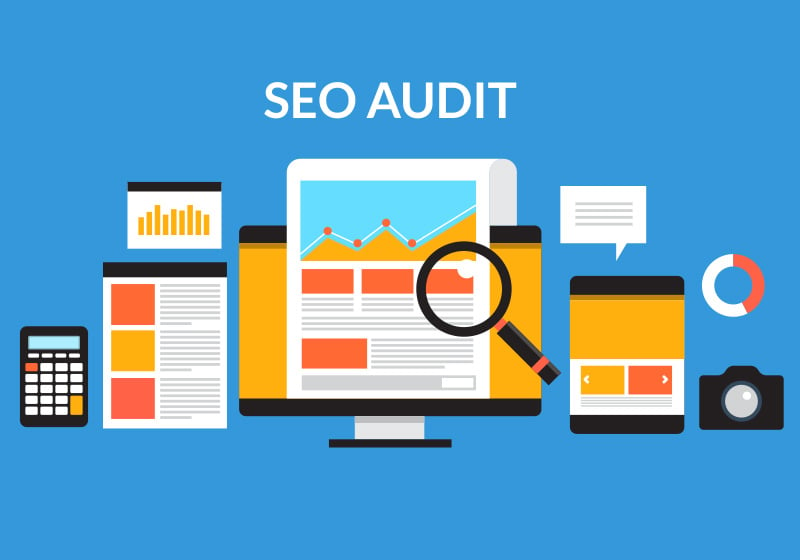Table of Contents
What is an SEO audit, and why is it essential if you want to optimise your website?
An SEO audit is a periodic check-up conducted by an SEO specialist that aims to identify a website’s strong and weak points in terms of its optimisation for search engines. It looks at the site’s technical and structural aspects and its contents to ensure that search engines are scanning and interpreting all the pages correctly. The goal is to ensure that your contents rank highly on SERPs (Google results pages) for all your business’ most important keywords.
SEO audits should be conducted regularly to monitor the performance of any new content you have added and to see how your competitors are faring, as well as to check the impact the latest updates to Google’s algorithms have had on your website’s organic ranking.
What is an SEO audit for?
An SEO audit is the essential starting point for any self-respecting SEO strategy, as it clearly identifies any issues on your website and the impact they have on its performance, allowing you to draw up a measurable and effective implementation plan.
A detailed SEO analysis can help to solve any technical issues that prevent search engines from indexing the content you publish correctly, as well as improving the overall user experience, which is one of Google’s main ranking factors. The audit will examine the general architecture of the website, the HTML code, how quickly it loads, how well it is optimised for mobile devices and other technical aspects that could penalise it from an SEO perspective. A strategic analysis is then conducted, taking into account the target audience, their search intent, the top keywords and the level of competition for each one.
The ultimate aim is to increase organic traffic – i.e. the number of visitors reaching the site having entered keywords into search engines – and the website’s conversion rate, in other words the relationship between the total number of visitors and the number of users that carry out a certain action. This could be buying a product or simply filling in a form or signing up to a newsletter.

What does an SEO audit contain?
An SEO audit is generally divided up into two sections, on-page SEO and off-page SEO.
On-page SEO
On-page SEO analysis refers to optimising everything on a webpage that could influence its organic positioning. It is a vast and complex operation that involves examining both the HTML code and the content (titles, text, the keywords used and internal links), not to mention parameters linked to readability, load times and the site’s usability. The content is assessed based on the most relevant keywords and those with greatest potential, in order to increase its ranking.
On-page SEO analysis includes the following:
Page indexing
- Sitemap: this map contains all of a website’s URLs ordered hierarchically, helping search engines to scan their contents. It should always be complete and up-to-date.
- txt files: These text files provide Google’s crawlers with instructions on how to access certain folders or resources.
- Duplicate content and canonical tags, i.e. attributes indicating that a piece of content is the original and definitive version compared to other similar or identical pages.
- Broken links: links that no longer point to anything worsen the browsing experience and slow Google down.
Status code checking
An HTTP status code is a server’s response to a browser request, identified by a three-digit code. The type of code determines whether the action can be completed successfully or blocked by an error. Analysing status codes shows if there are any issues reaching certain resources, and whether these errors may affect the pages’ ranking.

Content analysis
- The quality and SEO optimisation of your content
- Keyword cannibalisation: where two or more pages on the website compete for the same keyword
- Identifying new themes matching the target audience’s search intent
Load speed and usability
- Page load time
- Usability on mobile devices
Off-page SEO
Off-page SEO, meanwhile, looks in detail at at the activities away from a website that affect its ranking on search engines. Backlinks, articles and mentions of the brand on social networks, blogs or other portals and customer reviews can all increase the popularity, authority and reliability of web real estate in Google’s eyes.
The quality of the backlinks is particularly important, as links from low-value websites could penalise a page’s ranking.

What happens after an SEO audit?
A detailed SEO analysis can take several weeks and should produce a clear action plan divided up into various activities. This roadmap will help you to correct the issues and critical problems identified and create content that best meets the needs of the target audience, simultaneously improving the site’s organic visibility and the browsing experience for users.
In conclusion, an SEO audit is an essential activity for any business wanting to compete on the web with an optimised and efficient website. Periodic monitoring of the site’s technical performance and searching out organic ranking opportunities should increase the traffic coming from search engines and the website’s conversion rate, and so improve your business’ revenue.



